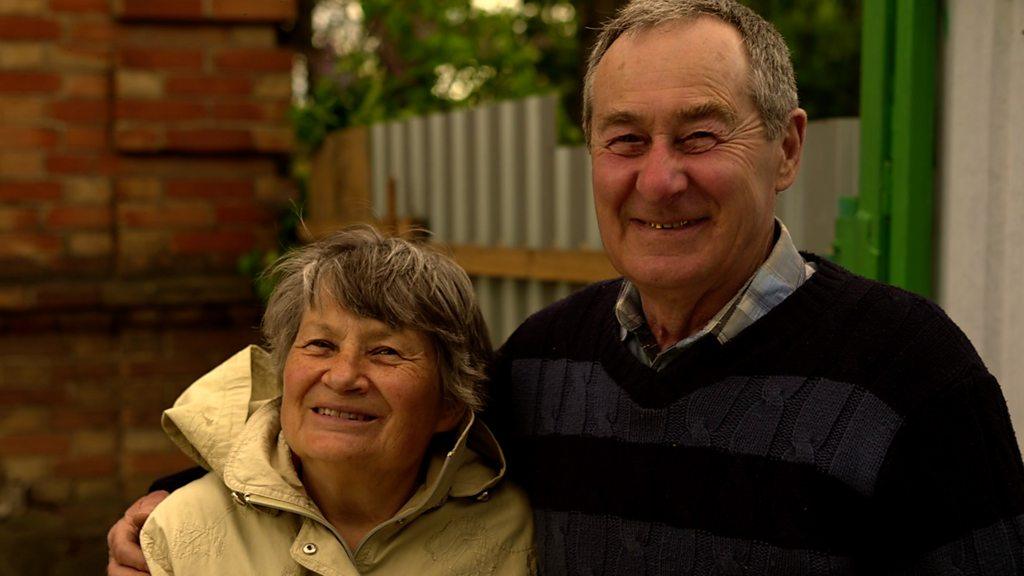Euro 2020: Ukrainians unite over football after years of struggle
- Published
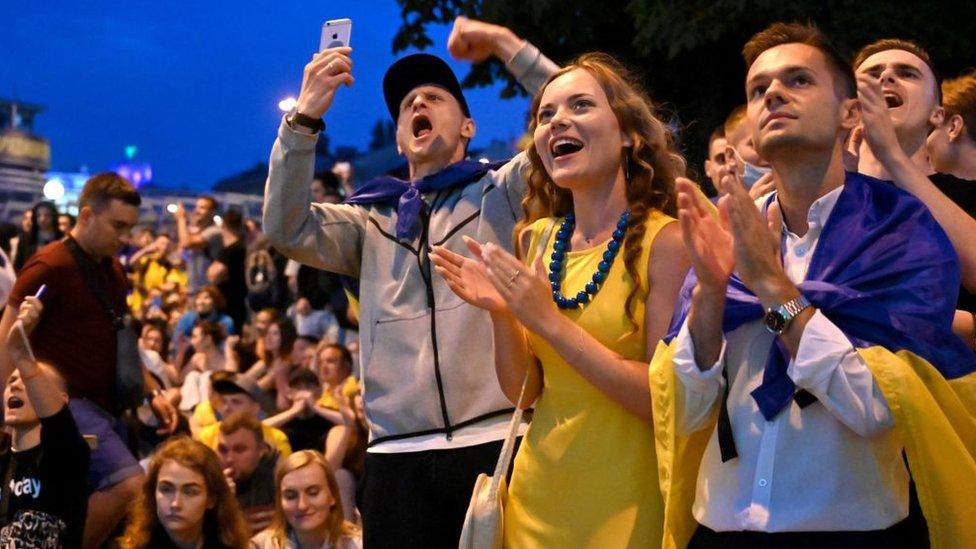
Every seat is reserved in the pubs and restaurants near the two giant screens in central Kyiv's fan zone, for Ukraine's first ever appearance in a European Championship quarter final.
"When we screened the Ukraine v Sweden game people screamed and jumped upon the tables," says Vitaliya Osadcha, who's expecting a full house at her nearby Porter Pub for Saturday's match against England. "We do our best to stop the spread of Covid-19, taking all the precautions, but when the fans get excited, they don't listen to us!"
For Ukraine the game is even more intense because of the way England knocked them out in Euro 2012.
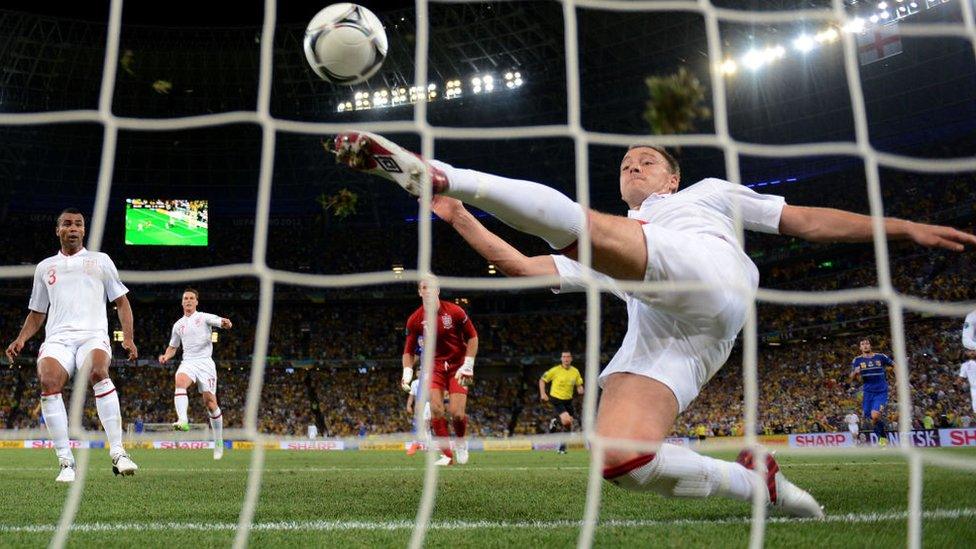
Over the line? Ukrainians believe they were robbed of a goal against England in Euro 2012
"Football fortune appears to have paid us back. Let's remember that disallowed goal," said President Volodymyr Zelensky this week, referring to a shot that many Ukrainians were convinced crossed the line.
Nine years on, Ukraine's footballers are in Rome and levels of excitement and national pride have reached a peak.
That 2012 match still touches a nerve because it took place in Donetsk, in eastern Ukraine. Two years afterwards it was seized by Russian-backed separatists and they hold it to this day.
The team's success in reaching the quarter-finals has given Ukrainians a much-need emotional release. They have suffered seven years of war in the east and long months of Covid lockdowns and a slow and difficult vaccination rollout.
The war in the east is a constant source of tension.
For a start, Ukraine manager Andriy Shevchenko has stopped selecting players from the Russian league, including top defender Yaroslav Rakitskiy.
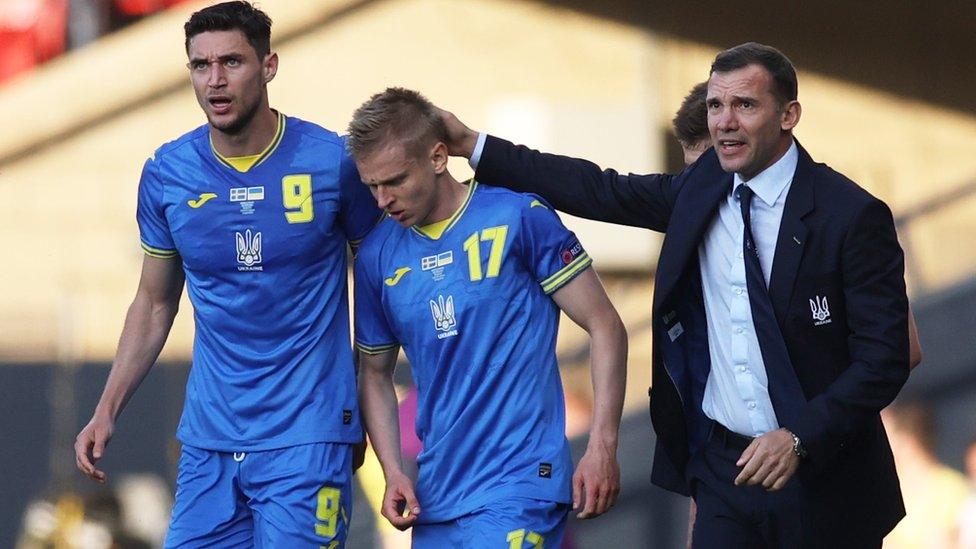
Andriy Shevchenko (R) has managed the national team for the past five years
The former AC Milan striker won the Ballon d'Or for Europe's best footballer in 2004 and is a national hero.
The pandemic has hit the national team hard too. Team doctor Anton Khudaev died of coronavirus complications last July aged 48. Then in November the whole team went into the quarantine after 10 players tested positive on the eve of a Nations League match against Switzerland.
The Swiss cancelled the match and Ukraine were "technically defeated", only for the players to test negative when they got home.
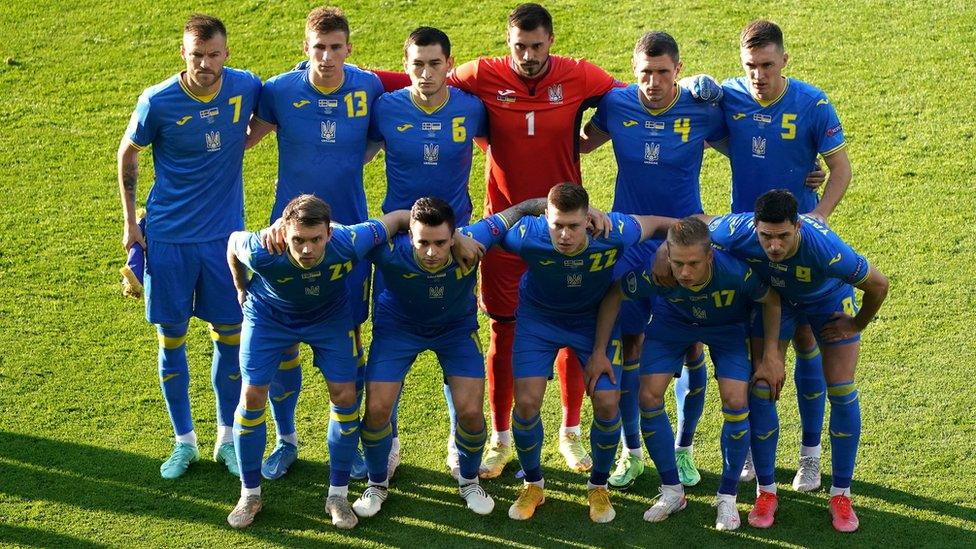
But success at Euro 2020 has done Ukrainians a power of good.
"Football unites Ukrainians across the country - from separatist-held Luhansk to the western Ukrainian city of Uzhhorod," says Vladyslav Ovcharenko, 24.
Before the war he had trained as a professional footballer and supported Luhansk club Zorya.
Then in 2014 his city was overrun by armed separatists and he was imprisoned for burning down their "flag".
After 15 months in captivity he was freed in an exchange of prisoners of war and has since got a job running social projects for Ukraine's football association.
I messaged one of our players to tell them we'll be behind them for every minute of Saturday's game. And we'll continue to support them when it's over, whatever the result

Friends in areas of the east held by Russian-backed separatists tell him that Ukrainians there are also supporting the national team, celebrating their victories.
And that is confirmed by Olexiy Artyukh, whose publication Tribun reports on the Donbas area of eastern Ukraine and monitors social media.
"Most public groups are controlled by the authorities but there are still some spaces for freedom of expression, such as the 'Typical Donetsk' group on Russian social media platform VKontakte. We see most of their subscribers support Ukraine's national team."
Of course there are plenty of Russia supporters there too, but he says it is hard to distinguish between the two. Pubs and cafes in Luhansk are known to have the Ukraine matches on TV and locals are said to cheer, although not as loudly as they might want.
It's not just England fans who will be few in number in Rome for the match; Ukraine-based fans can't travel to Italy at all for non-essential visits.
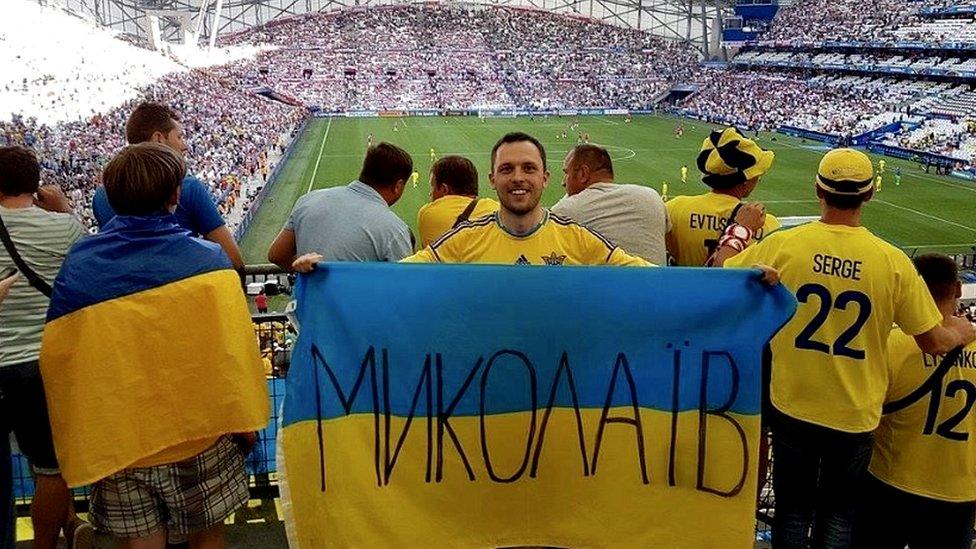
Igor Meisner will be holding his Ukraine flag aloft at the Stadio Olimpico on Saturday
But Igor Meisner is based in Augsburg in Germany, so he's driven the 1,000km (621 miles) route to Rome to support the team. "For me this is a chance to get in touch with other Ukrainians," he explains.
"Unlike supporters from richer countries, Ukrainians couldn't afford to travel and we used to come in much smaller numbers."
For sports journalist Kostyantyn Andriyuk, Ukraine's success has given the country a respite from a difficult time.
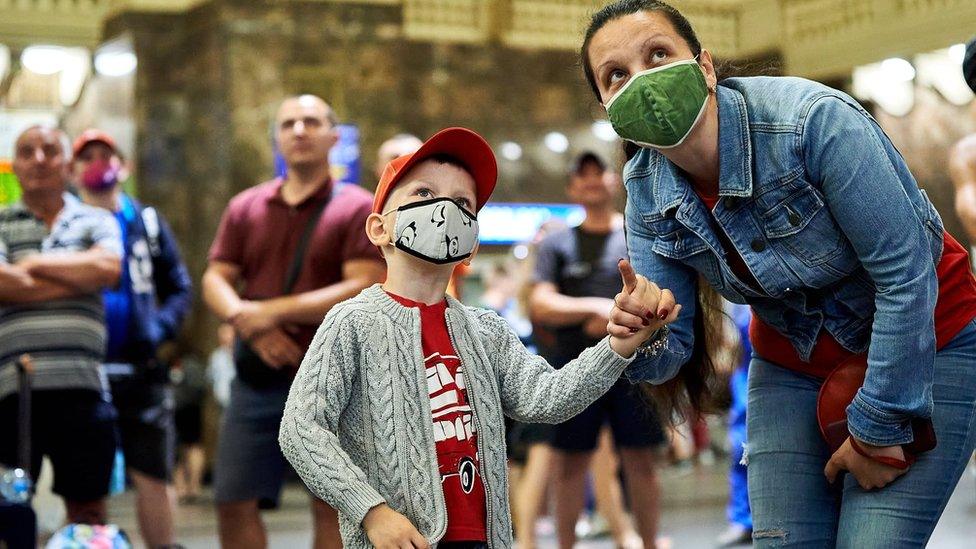
TV screens have been placed at Kyiv's central railway station to ensure travellers do not miss the action
"Ukrainians have lacked real wins in other areas: the battle against corruption and curbing the impact of oligarchs on politics and the economy. So they need another kind of victory to keep their spirits high," he says.
The country's political leaders are also trying to seize the momentum, donning the national team kit for a cabinet meeting after Tuesday's victory in the last sixteen.
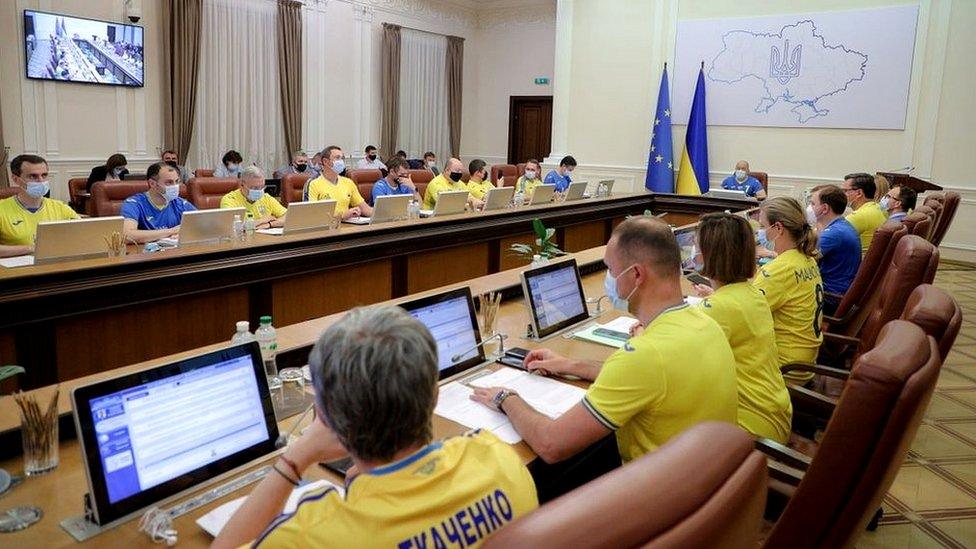
Ukrainian ministers wore their national team's shirts to a cabinet meeting on Wednesday to celebrate victory over Sweden
And Ukraine's Euro 2020 kit is more than just a shirt. The original strip bore the military slogan "Glory to the heroes" on the collar - a message that became a patriotic cry and a symbol of identity in the conflict with Russia. When Russia protested, Uefa asked Ukraine to remove it.
But Saturday's match goes beyond politics. The bars and restaurants will be packed, TV screens have been placed in Kyiv's central railway station, and their team is playing on the international stage.
For Ukrainians, it is a sign of life returning to normal.

More stories from Ukraine:
Svetlana and Anatoly have survived seven years of the Ukraine conflict together
Related topics
- Published7 June 2021
